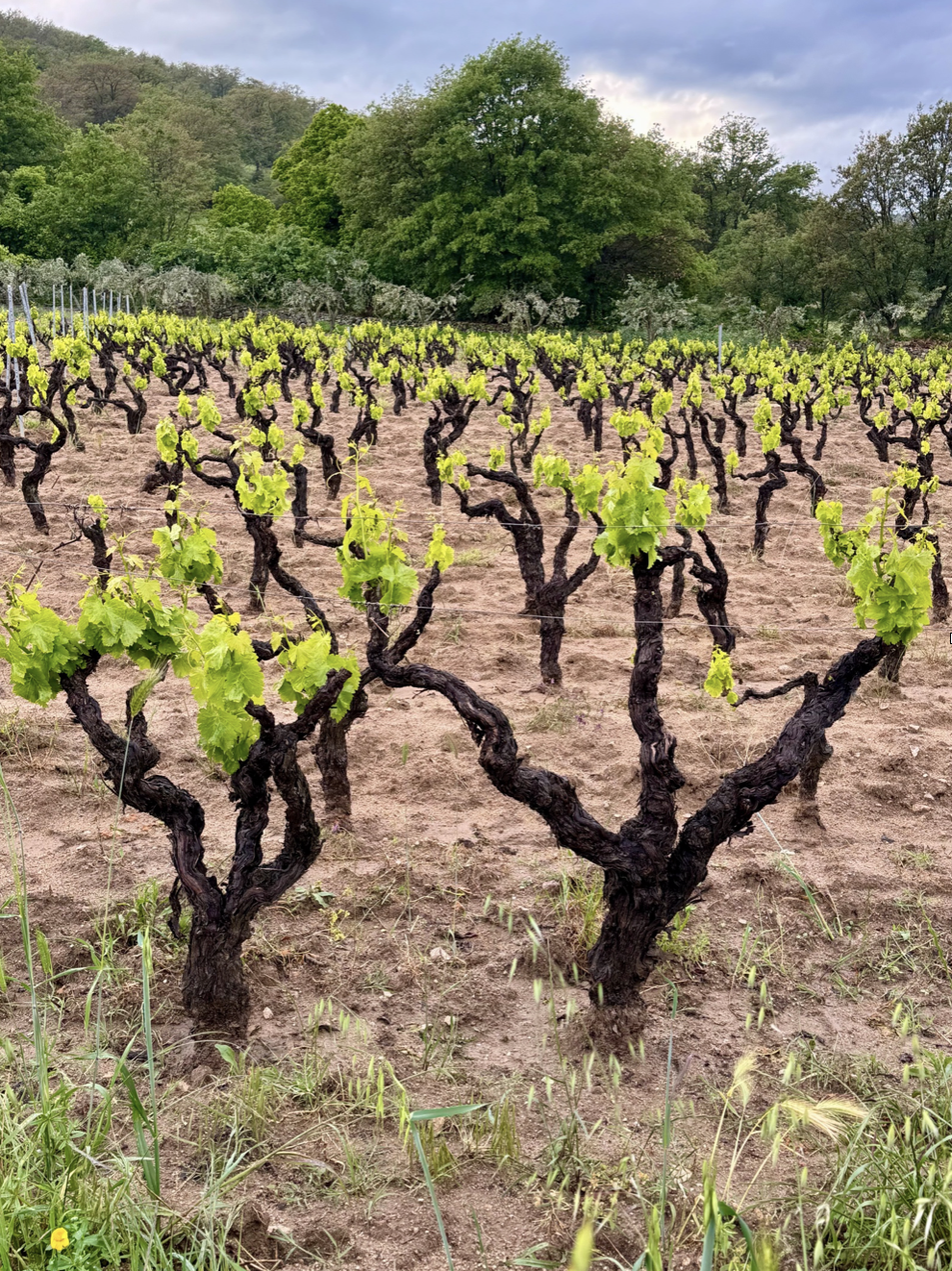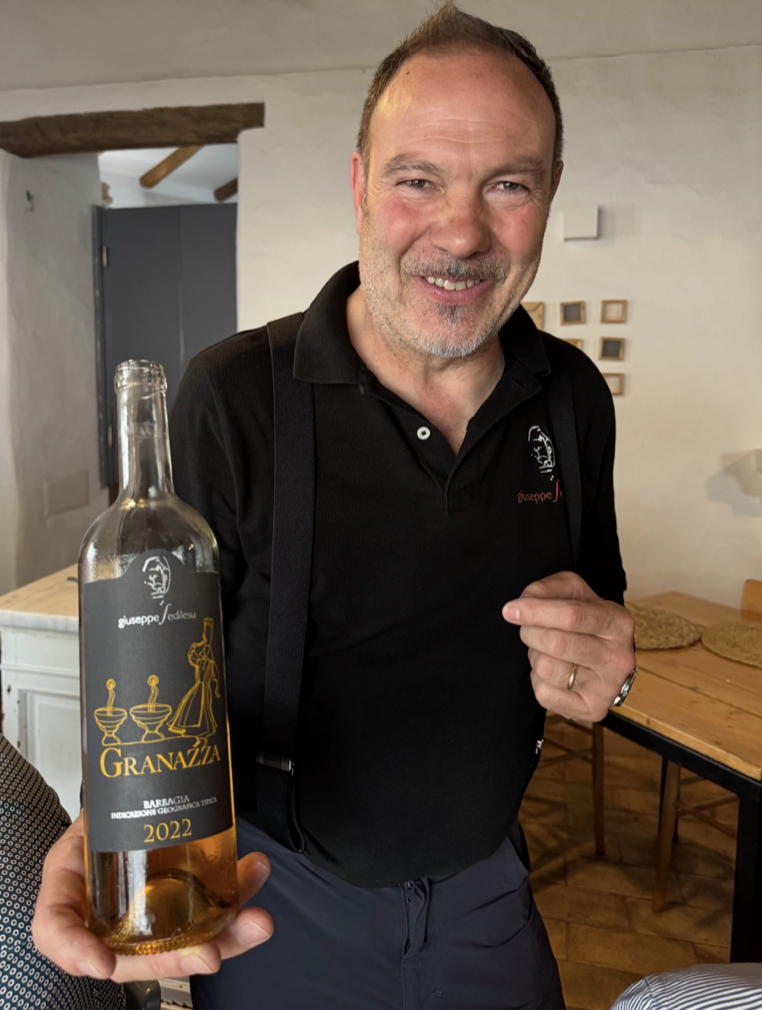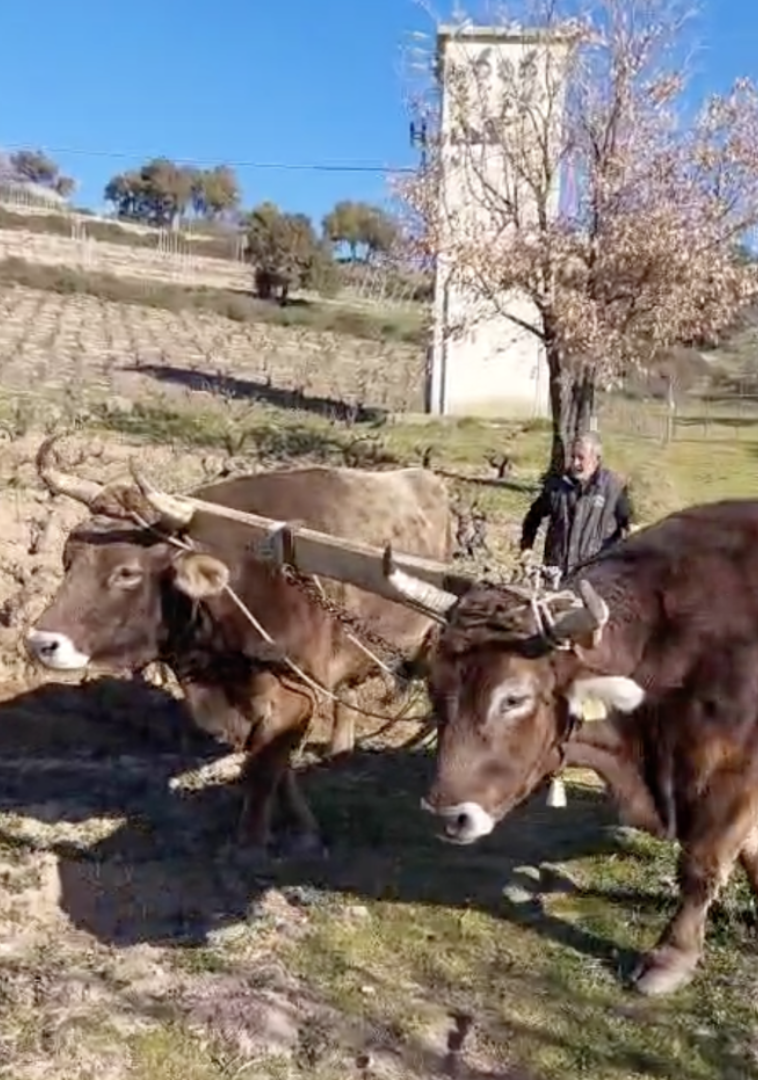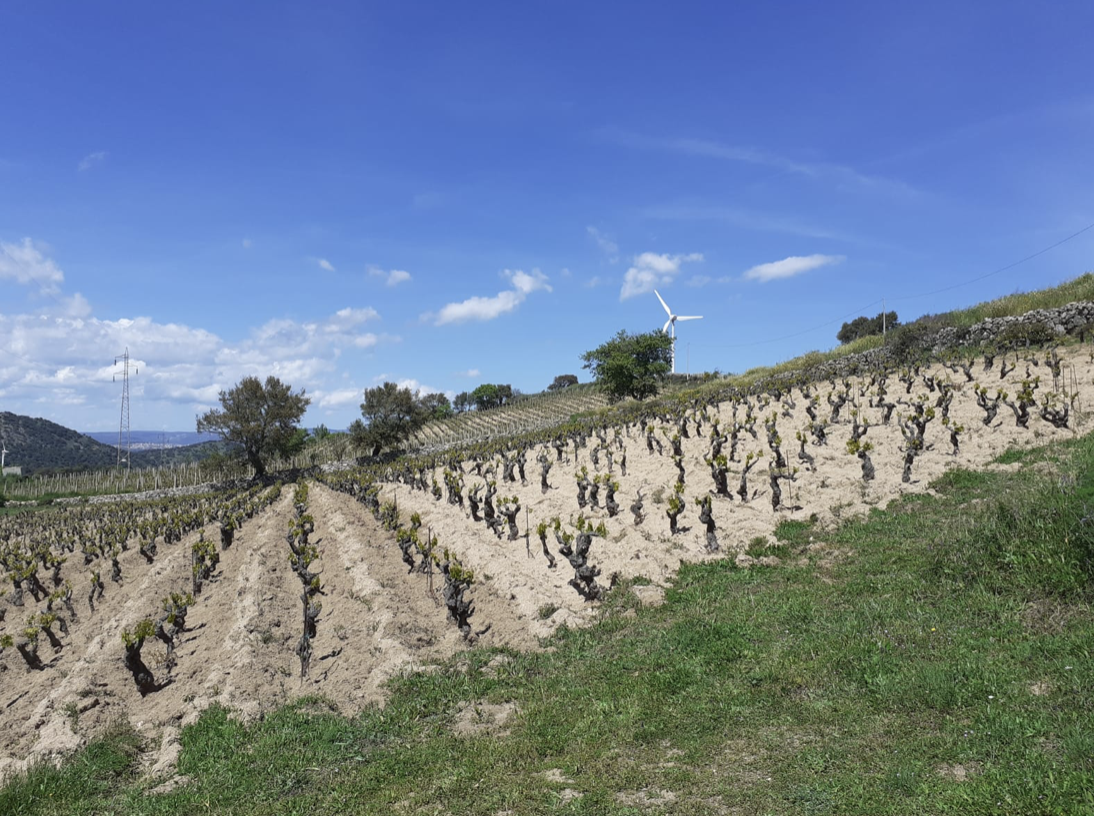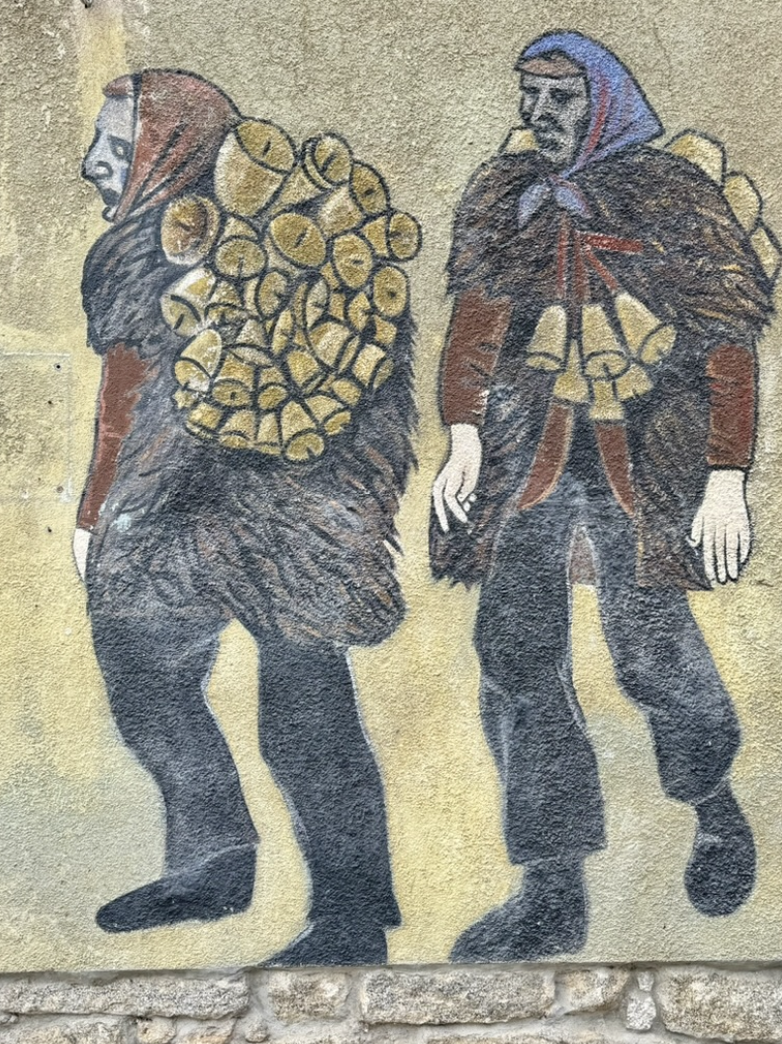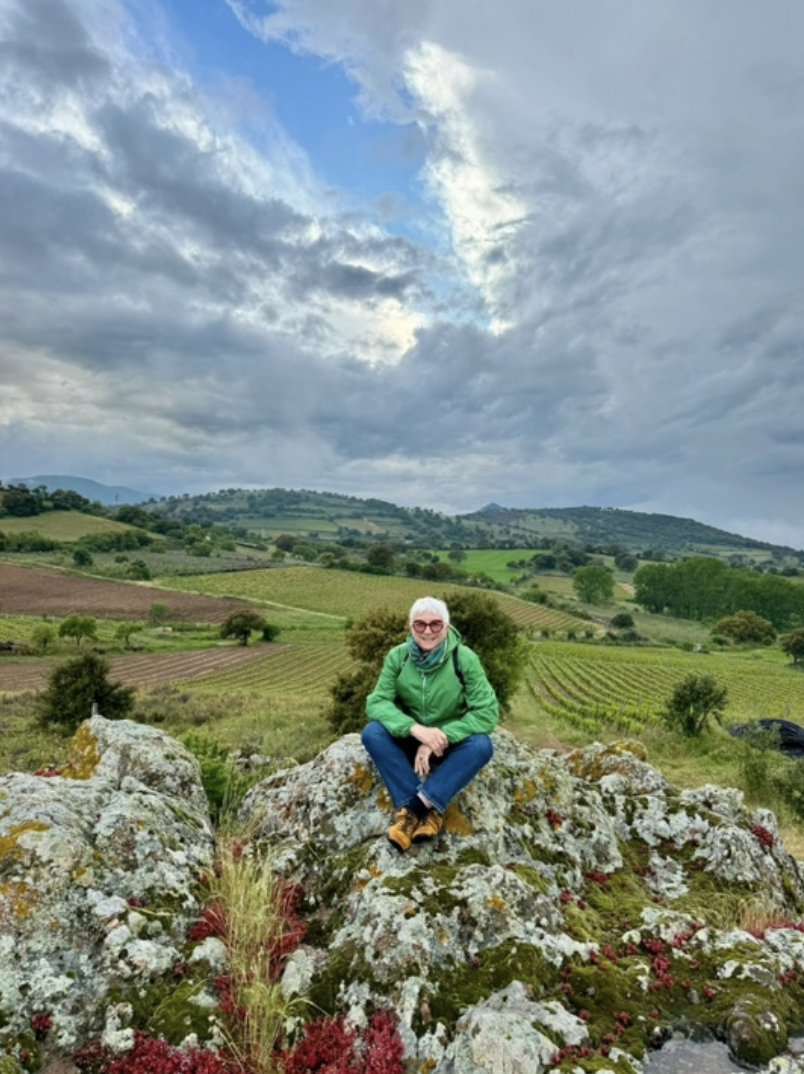Mamoiada: A Community Rooted in Old Vines, Culture, and Collective Strength
By Michele Shah, OVC Regional Ambassador for Italy
This past May, I had the privilege of visiting Mamoiada, a small yet remarkable village tucked into the rugged interior of Sardinia, at the invitation of the Mamoja Association. The experience was not only enriching from a professional standpoint—it was deeply personal and inspiring. What I discovered was a vibrant wine community grounded in age-old viticultural practices, communal values, and a fierce commitment to preserving both their identity and land. Central to this heritage are their century-old, bush-trained (alberello) Cannonau vines, which stand as living monuments to tradition, resilience, and a deep-rooted connection to place.
Century old Canonau vines
With only 2,500 inhabitants, Mamoiada punches well above its weight when it comes to cultural and viticultural heritage. Situated between 600 and 900 metres above sea level in the heart of Barbagia, the region is defined by its granite soils, dramatic diurnal temperature shifts, and centuries-old bush-trained vines. Here, Cannonau reigns supreme—accounting for 95% of planted vineyard area—with the indigenous white variety Granatza making a welcome and rapid comeback in recent years.
What makes Mamoiada truly unique, however, isn’t just its terroir—it’s the spirit of collective resilience and revival that flows through every vine row, cellar, and family table.
Mamoja: An Association with a Mission
Founded in 2015, Mamoja—named after the local dialect for Mamoiada—is an association of winegrowers and producers committed to promoting and protecting the village’s viticulture, natural environment, and cultural heritage. Led by one of the region’s most renowned producers, Cantina Giuseppe Sedilesu, with Salvatore Sedilesu at the helm, the association curretly represents 70 members, including 25 active wineries and 43 commercial producers focused on preserving Mamoiada’s unique Cannonau heritage.
Salvatore Sedilesu of Cantina Giuseppe Sedilesu
Simone Sedilesu and his wife at Cantina VikeVike
In a time when many rural areas in central Sardinia are facing depopulation, Mamoiada has gone against the current. Here, viticulture isn’t just an economic activity—it’s an act of cultural preservation, a way of life passed down through generations.
Walking the vineyards and talking to the producers, I was struck by how many of them are multi-generational farmers, working plots that have been in their families for decades, often using oxen for ploughing and hoes for manual finishing—especially in their old vineyards. These low-yield plots produce grapes of extraordinary character and depth, a true mirror of their terrain.
Farmer towing the land in old Canonau Vineyard
Century old Canonau Vinese
A History of Resistance and Revival
Mamoiada’s relationship with wine is storied and complex. In 1855, the village had 65 hectares of vineyards—a number that ballooned to 420 by the 1950s. But when the Southern Italy Development Fund imposed a social cooperative on the area, the results were disastrous. The cooperative, misaligned with the locals’ traditional, additive-free methods, produced wines that residents refused to identify with. Referred to derisively as vino di cantina, the cooperative wine eventually failed, and the movement collapsed by 1980.
What followed was a quiet return to tradition. For the next two decades, Mamoiadini made wine at home, using minimal intervention and age-old practices. The wines were not sold but shared—a thread that helped maintain community cohesion and cultural continuity. Still today there are many producers who prefer to make wine at home, in their garage and sell privately ratehr than bottle. And believe me they sell all their their wine in bulk for between €3.50 and €4.50 a litre.
Since 2000, small family wineries have re-entered the market, bottling wines that reflect their heritage. Today, under the guidance of Mamoja, the region produces 500,000 bottles annually, generates €4.5 million in turnover, and sustains around 100 jobs, many held by young men and women who have chosen to stay and invest in their home.
A Fight for Recognition
Despite its viticultural prowess, Mamoiada still lacks official recognition as a distinct wine zone. Producers must label their wines under generic appellations such as DOC Cannonau di Sardegna, IGT Barbagia, or IGT Isola dei Nuraghi—all of which span far broader territories and dilute the specific identity of Mamoiada wines.
Mamoja has taken a proactive role in highlighting this discrepancy, advocating for a dedicated DOC Mamoiada. Until that is achieved, the association urges its members to continue producing wines that reflect their local character and to remain committed to their sustainable and community-focused model.
Culture in the Glass—and Beyond
No visit to Mamoiada would be complete without encountering its deeply symbolic culture, epitomised by the ancient tradition of the Mamuthones—mysterious masked figures cloaked in black sheepskins, who move rhythmically in ceremonial processions that date back millennia. Each Mamuthone carries on his back a heavy cluster of cowbells—known as sa carriga—weighing up to 30 kilograms, which ring in unison with their synchronized, ritualistic steps, creating a hypnotic soundscape that echoes through the village streets. The village’s unique museum, dedicated to this extraordinary tradition, offers a captivating glimpse into the pre-Christian roots of Sardinian identity. It’s a culture that, like the wines, speaks of mystery, endurance, and community.
Mamutones Typical Mamuthones Costume
Wall paining -Mamutones Typical Mamuthones Costume
The Future Lies in Community
What I found in Mamoiada was more than a wine region. I found a living example of how a territory and its people can come together to uphold a shared identity—through vines, through tradition, and through the simple but powerful act of making wine that reflects who they are. The village also boasts some terrific local restaurants, where hospitality is heartfelt and the prize dish is always porceddu—Sardinia’s iconic spit-roasted suckling pig, slow-cooked to perfection over an open fire. Rich, savoury, and deeply rooted in tradition, porceddu is the perfect pairing to the village’s robust and expressive Cannonau wines.
In Mamoiada, old vines aren’t a marketing claim—they’re a way of life. They’re the bridge between past and future, and they anchor a community that believes deeply in collective strength.
I’m grateful to the Mamoja association and its member producers for welcoming me with warmth and generosity. Thank you for your time, your hospitality—and most of all, your wines, which are among the most honest and soulful I’ve tasted.
Website: www.mamoja.it
Facebook / Instagram: @mamojavini
Michèle Shah is a wine journalist, consultant, and Regional Ambassador for Italy at The Old Vine Conference.

